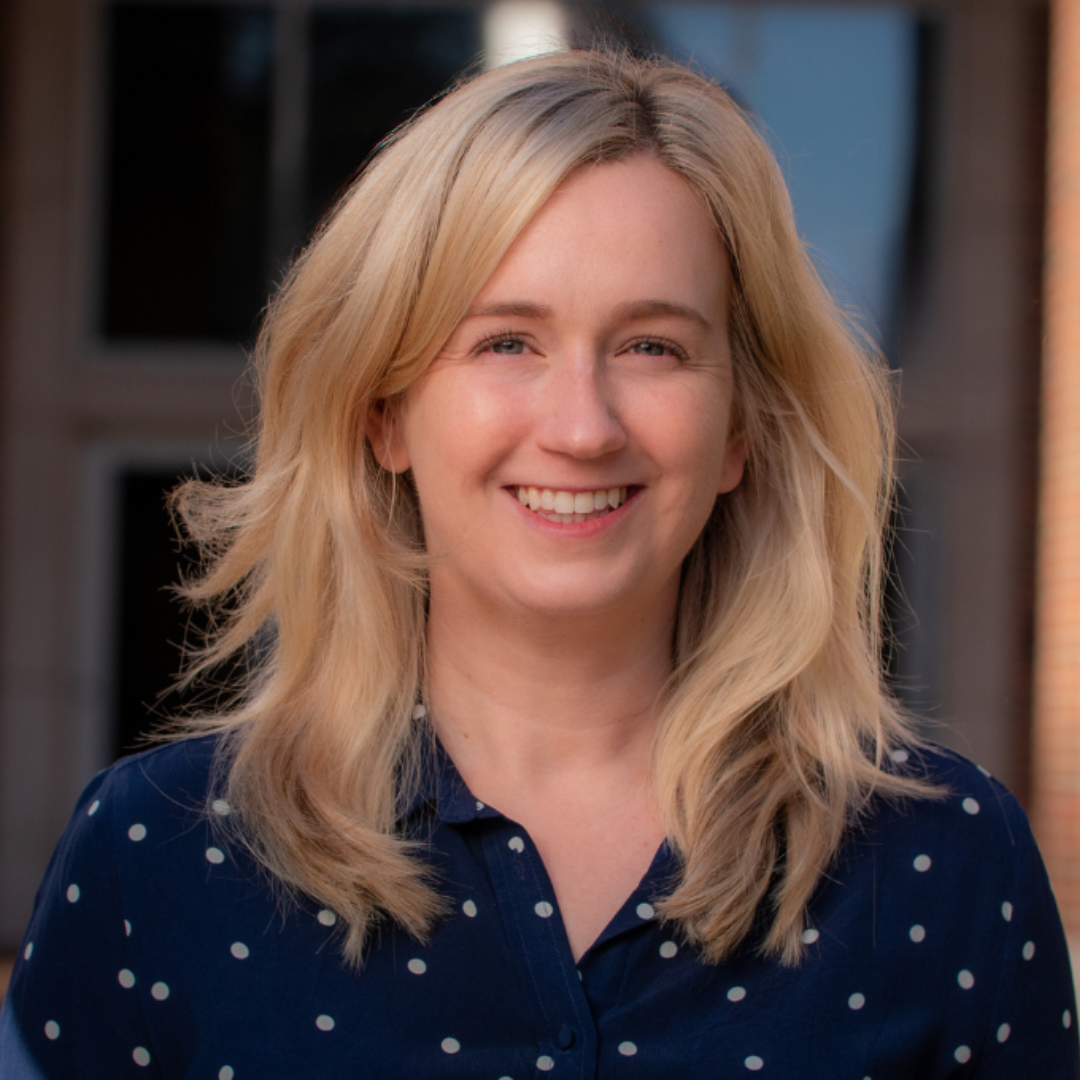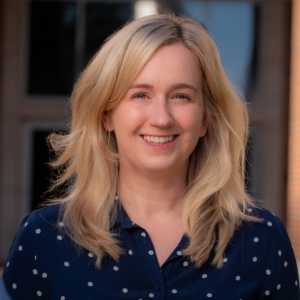For New Research Economist, It’s About Asking the Right Questions
Sarah Dickerson joined the Kenan Institute of Private Enterprise in January as an assistant research professor and research economist, bringing expertise forged through many years of research on housing, migration and economic well-being.
Sarah has already become an integral contributor to the institute’s American Growth Project, applying her knowledge of housing economics and policy as well as her data science skills to develop measures of economic health that are meaningful to individuals and local communities. She recently wrote an essay on housing affordability – and the lack thereof – in the U.S. that features detailed policy prescriptions.
A social scientist interested in the practical applications of data-driven research, Sarah has published scholarly work on important issues affecting broad swaths of the world’s people, including studies that evaluate global migration models; assess factors that mitigate financial risk in impoverished settings; analyze short-term rental and global housing market trends; and uncover structural factors that led to racial disparities in COVID-19 case positivity rates.
Before joining the Kenan Institute, Sarah was a postdoctoral associate and lecturing fellow at Duke University’s Sanford School of Public Policy, where she taught graduate-level courses in statistics and social policy while performing research focused on housing insecurity and migration. Sarah holds a master’s from the London School of Economics and a Ph.D. in public policy from the University of Maryland.
Today, we sit down with Sarah to ask a few questions about her experience and interests, as well as her vision for how she will contribute to the Kenan Institute’s solutions-oriented mission.
From your experiences as a researcher, what are data’s revealing powers and what are its limitations?

Sarah Dickerson: Data allows us to authoritatively answer questions. Too often assumptions are based on incomplete information, yet with access to reliable data we can generate knowledge that is based on evidence and make better-informed choices. One of data’s chief limitations is that it can’t always tell us which questions need to be asked and why. To come up with the right questions, researchers need to engage with practitioners, policymakers and those who provide insight on what’s happening on the ground.
In my research, I collaborate with academics, policy experts and scientists to fine-tune the questions I aim to investigate. When, for instance, my colleagues at Duke University and I examined the state of climate migration forecasting models, we held multiple interviews and panel workshops with experts working in this space. Through these discussions we learned the strengths and weaknesses of current forecasting approaches, helping us to refine our research questions. Conversations with experts also reveal opportunities for future research.
You generally employ a human lens in your research and produce results with real-world applications. What questions do you aim to answer and which practical problems do you hope to address in your work?

Sarah Dickerson: In collaboration with Fifth Third Bank, our research team recently launched Empowering American Cities, which leverages economic data to inform local decisions in pursuit of financial performance and sustainable growth in America’s microeconomies, and this year we are launching concurrent projects that complement this exciting work. For one such project, we’re developing economic health indicators for the country’s extended metropolitan areas (EMAs). This initiative will provide holistic measures of economic well-being for American cities, indicating the extent to which local economies enhance the lives of their inhabitants. As part of this endeavor, we will develop EMA-level indictors that measure talent, household economic security (e.g., debt and savings), and business growth and formation, forming a comprehensive picture of economic health. While we will evaluate common metrics such as GDP and skills measures, we will also measure other factors, including housing instability – a driver of education outcomes, health and economic growth. Drawing from my earlier research, I will map the share of households in each of our 150 EMAs that spend 30, 40 or 50% of their income on housing.
The Kenan Institute’s stated mission is to “develop and promote innovative, market-based solutions to vital economic issues.” How will your work advance this mission?

Sarah Dickerson: Attracting, developing and retaining talent is essential to promoting local economic growth and driving innovation, so metropolitan areas across the U.S. want to know how to secure the best and the brightest. My colleagues and I are developing models that shed light on this vital economic issue. We’re investigating the importance of housing affordability, transportation, the number of parks and green spaces, and other factors that influence a city’s desirability among highly skilled workers. Our models will differ across various categories of talent, such as recent college graduates and middle career talent. For example, the rent-to-income ratio may matter more for recent college graduates, while the median sales price of homes may carry more weight for middle career talent.
While my research and writing will help further the institute’s mission, I also aim to expand the mission’s scope by reframing some of the fundamental questions being asked. Questions like, What economic issues are most salient to middle- and low-income people? And which of these issues are chronically overlooked and undiscussed? By shedding light on these often ignored areas, I hope to promote solutions for economic growth and health with outcomes that are lasting and equitable.
